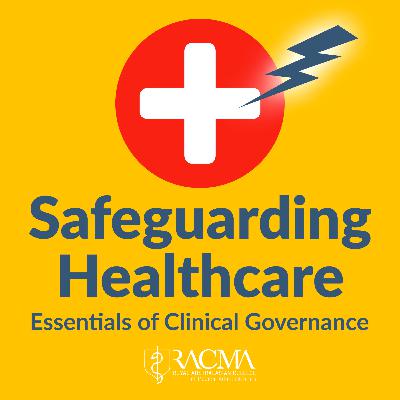
Safeguarding Healthcare
Author: Royal Australasian College of Medical Administrators
Subscribed: 16Played: 208Description
Safeguarding Healthcare leads you through the intricate corridors of hospitals, taking you behind closed doors on an extraordinary journey. This is the podcast that holds a stethoscope to the beating heart of hospitals to reveal the reasoning behind the clinical governance decision making process.
Join host, Dr David Rankin, a 35-year veteran of medical administration, as he puts some of Australia’s most senior hospital managers in the hot seat to challenge them with major and often complex hypothetical challenges that reflect some of the most contentious issues facing modern medicine. This podcast offers an unfiltered view of the web of patient safety, medical ethics, and healthcare decision-making.
Join us as we explore gripping topics, from the thorny questions surrounding patient consent to the implications of ground-breaking healthcare technologies. Each episode delves into the heart of healthcare, scrutinizing the decisions that impact patient well-being and safety.
Discover how these passionate professionals navigate medical minefields, striving to ensure the highest standards of care, all while grappling with a broad and ever-evolving healthcare landscape. Whether you're a seasoned healthcare practitioner, a patient seeking insight into the system, or simply curious about the inner workings of hospitals, this podcast offers an enlightening perspective on the complexities of modern medicine.





